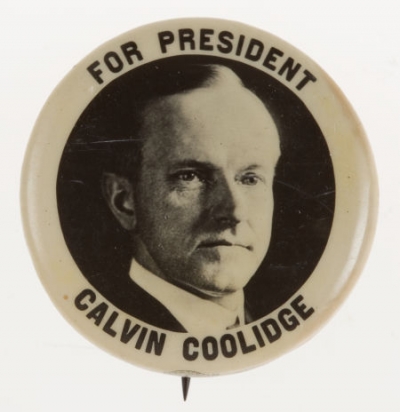You heard it here first: Martin O’Malley, the guitar player, will be the 2016 Democrat nominee for President (assuming there’s still a Republic.)
Why? It’s easy:
- To be the nominee, you almost certainly have to be a sitting governor or senator (or Vice President).
- The current Democrat governors and senators are overwhelmingly ancient, physically unattractive, mired in scandal, or female. The current Vice President is the ridiculous Joe Biden. Besides, he’d be 74 on the day of a 2017 inauguration.
That leaves Maryland governor O’Malley, and almost no one else, even though 5 years ago he wiped his feet with the Constitution. No idea who the Republican nominee will be. The GOP has a habit of giving the nomination to the guy who finished 2nd the previous time, which would mean Rick Santorum.
Oh my God! Look at all those submissions! We couldn’t believe how many we received this week, after filibustering our way through the previous Carnival of Wealth.
Carnival of Wealth, you say? Yes. Personal finance blog posts from across the globe, organized into a cohesive if not coherent whole. Our prolog finished, let’s get started:
Andrew at 101 Centavos goes first, because his post made our blood boil the quickest. This post is so good it doesn’t deserve to be truncated into a synopsis, but here goes:
All you idiots who insist on not only going to college, but financing your education via Sallie Mae, take heed. And think about whom you’re enriching with each loan. Andrew’s post is about Sallie Mae’s investment potential, but he couldn’t help but pull back the curtain to see how the student loan company’s executives manage to make do when their customer base is a bunch of impoverished students. Exceedingly well, it turns out. Andrew includes a link to a Baltimore Sun story about the private golf course the company’s chairman is building:
[CEO Albert] Lord, 62, is steering $15 million toward Anne Arundel Manor, a 7,100-yard, par-72 course for him and up to 100 members in Harwood. During the past three years, the Annapolis resident has assembled about 335 acres with the goal of playing golf his way.
“I hate rules,” he said.
…
Wealthy enthusiasts across the country are putting up millions to build private sanctuaries. Few, though, are spending more than Lord…
What he has not liked is the hassle of waiting for several county and state approvals, although he understands the intentions of the inspectors. As in business, he said, instead of becoming frustrated, “I learned that I just have other people who interact with them.”
He has people. It gets even more detached and imperious from there. Read the article, in addition to Andrew’s piece. If you were to substitute “Mitt Romney” for “Albert Lord” in the narrative, the not-quite-Rhodes scholars at Money After Graduation would be assembling a lynch mob. Assuming any of them are handy enough to tie a hangman’s knot.
We’ll be the first to poke fun at bad English here at CYC, but only if the post comes from a native anglophone. Dutchman Stefan of Skuzet gets a pass. Stefan is in the middle of a series about the lives and philosophies of some of history’s greatest investors. This week his subject is Benjamin Graham, author of the indispensable Security Analysis and The Intelligent Investor, and mentor of Warren Buffett.
From J.P. at Novel Investor, the interest rate paradox. To simplify, bonds (and bond funds) have enjoyed decades of rising prices. The Fed now keeps rates artificially low, thus encouraging people to put even more money into bonds. Investors seeking returns thus look into lower- and lower-rated bonds, pushing their prices higher, and…your bond fund might not be as safe as you think.
Few things are as depressing as a rhetorical question from PKamp3 at DQYDJ.net. This week he asks what a rental meltdown would look like. Remember collateralized debt obligations, the financial derivatives that caused the housing market to bubble and then burst? Imagine the same concept applied to rental payments made on foreclosed homes. And watch the fun were rents to do what home prices spent the last 5 years doing.
Some (hopeless) people think that presidential campaigns should be funded by taxpayers. Don’t like a candidate? Disagree with every plank of his platform? Under such a scheme, you can give him your money anyway! Until we reach that point, Odysseas Papadimitriou at Wallet Blog recounts the absurd amounts of money spent by the Obama and Romney campaigns to win a job that pays $400,000 a year. Treat your own funds a little more conservatively than the various political action committees and SuperPACs, and you’ll be on your way to greater self-determination and peace of mind.
New submitter Aussie Investor explains how a dividend reinvestment plan works.
JT at ETF Base looks at options, specifically the ratio of calls to puts in the market. If more people are buying options that allow them to sell a stock at a fixed price than are buying options that allow them to buy a stock at a fixed price, we’ll have one exceedingly unwieldy sentence. Seriously, the option ratio is a way to quantify investor sentiment. When people are loading up on puts, it’s a (stock) buyer’s market.
Zero. Teacher Man at My University Money asks how much you should borrow in student loans.
Sponge off family members, work, go to a trade school. There are so many college graduates, and such a tiny fraction of them with the capacity to understand that for the average one, that degree is a losing financial proposition. Stop reciting the mantra about how “college graduates earn x more over their careers than high school dropouts do.” Instead, compare yourself to the kids who graduate high school without going to college. Next, measure the median rather than the average. Which is to say, stop relying on each heart surgeon and chemical engineer who’s pulling up the value of x, and instead look at the corresponding dozens of retail salespeople and preschool teachers whose net worths are firmly in the red.
Of course, no one’s going to listen to this advice. Teacher Man himself even does the rhetorical trick of saying, “I don’t nominally approve of a certain thing, but here’s a way to take advantage of its existence.” In this case, it’s taxpayers covering debtor students’ losses. There’s a Canadian province that forgives student debt over $26,000. If you’re going to fail, fail big.
If someone owes you money that you formally lent them, the civil servants at the Consumer Financial Protection Bureau will see to it that receiving said money will be as hard as possible. That’s the news from Liana Arnold at Card Hub who tells us, long story short, that large debt collectors (that’s debt collectors that are large, not necessarily collectors of large debts) will now have to prove that they’re playing nice when contacting debtors. Keep records, etc. More work mandated by the federal government, only this time it’s redundant. After all, every state has similar consumer protection laws on its books. Freedom from tyranny doesn’t mean freedom from bureaucracy.
Speaking of artificial manipulation of interest rates (it was a few paragraphs ago. How short is your memory, anyway?), some needed advice from our philosophical sibling Ken Faulkenberry at AAAMP Blog. What do you do when the President, his lieutenants, the Fed chairman and complicit senators decide it’s time for taxpayers to own car companies and borrow money at rates divorced from supply and demand? This post is every bit as bleak, and as critical, at J.P.’s.
From our friends at Becoming Your Own Bank, a YouTube clip! It’s about what to do now that President Obama has won a 2nd term. We already did you the favor of adding a time code that incorporates the Wadsworth Constant to the video. It has 12 views as of this morning, so do them a favor and watch it.
Nelson at Financial Uproar has deigned to grace us with a submission this week. Even though he’s a lifelong bachelor (Ed. note: Not a euphemism for homosexual, as far as we know. He’s just never married), Nelson has decided to offer advice regarding prenuptial (or as they say in British Columbia, “prenupital”) agreements. It’s more education than advice, really. Don’t think that you can stash assets going into a relationship and assume they’ll be there once your marriage fails, which it probably will. Marriage as a “partnership” means exactly that. You all remember how Juanita Jordan won 3 NBA titles with the Chicago Bulls, right? And how Heather Mills wrote half of “Hey Jude”? (Well, one quarter, along with McCartney, Lennon and Ono.) The courts seem to think they did.
How do you find out about junior oil producers before the investing public does? The best place to start is by reading Mich at Beating the Index, a man who knows more about the Canadian energy industry than anyone alive (or at least, any of our submitters.) This week, Aroway Energy, a company trading at a miniscule 40¢ per BTU per day. If Aroway can continue drilling and striking oil throughout the winter, that price could rise.
Dividend Growth Investor tells us why he’s obsessed with dividend stocks. He checks his accounts daily, which isn’t something we’d normally recommend but in his case, it’s to free him from the inanity of a regular day job.
Our Extremely Tangential Submission of the Week? None other than this one from Harry Campbell at Your PF Pro, who reviews kitchen knives. That’s a personal finance topic, isn’t it? After all, knives are goods that can be exchanged for money. Not only does Harry have fascinating things to say about his new cutlery:
The set included: an 8-inch chef’s knife, an 8-inch slicer, a 7-inch santoku knife, a 5-1/2-inch boning knife, a 5-inch utility knife, a 3-1/2-inch paring knife, and six 4-1/2-inch steak knives, plus a pair of shears. Now the only knives I really use out of that set are the steak knives and the slicer(bread knife)
So do his commenters:
Due to allergies and a desire to not eat anything processed I cook 2-3 meals per day for my family.
So if you thought you knew everything there was to know about the physical constitution and eating habits of commenter thestarvingartistcanada, you didn’t.
We’re on ProBlogger this week, and Investopedia every day it seems. Join us back here next Monday. Well, join us here every day. You can’t stop the new content, because the new content never stops.





